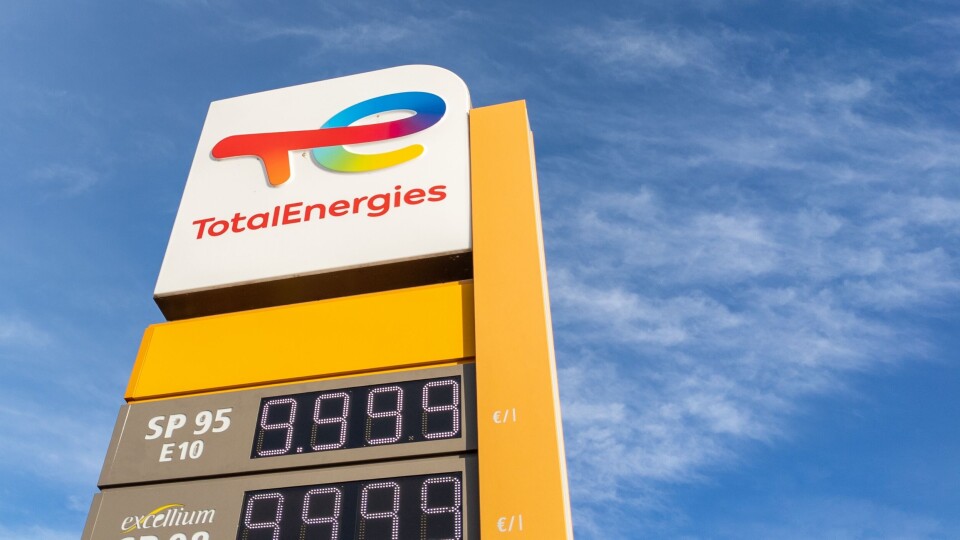-
French crisps brand gains global attention after Dua Lipa post
Singer posted photo of her shopping basket and the only food items were Brets crisps in braised chicken, honey mustard, and ‘Fromage du Jura’ flavours
-
Why supermarkets are urging shoppers to buy French leeks
Try our French classic leek vinaigrette recipe
-
New bill targets skiers under influence of alcohol or drugs
There are not currently any specific rules on skiing while under the influence
France’s petrol journey explained and where are shortages continuing?
More than half of France’s departments are still impacted by strike action to varying extents

Many petrol stations across France continue to report fuel shortages as workers at refineries and depots maintain strike action.
Overall, 12.4% of stations nationally report a lack of petrol or diesel. A total of 48 departments (more than half the country) are currently impacted in at least 10% of outlets in their area.
Initially, levels were lowest in the southeast, but areas of the Atlantic coast now also report significant shortages.
Almost 40% of sites in Loire-Atlantique report stock issues, with similar figures in the neighbouring departments of Mayenne, Ile-et-Vilaine, and Maine-et-Loire. Similarly, just over 40% of stations in Bouches-du-Rhone are affected, while neighbouring departments in the same region are at almost 30%.
Some petrol stations in Loire-Atlantique are limiting drivers to 20 litres each per transaction.
The situation in Ile-de-France has worsened in the last few days with 30.6% of pump stations in Paris now reporting issues, along with 39.1% in Val-de-Marne and 48.2% in Hauts-de-Seine.
The above figures come from the government’s website for analysing petrol prices and shortages, prix-carburants.gouv.fr.
What is causing the shortage?
The petrol industry union l'Union français des industries pétrolières (UFIP Energies et mobilités) has said that two main factors are causing the shortage.
Firstly, the blockades at fuel depots.
For example, the Donges depot and refinery were blockaded, affecting supplies in the Pays de la Loire.
In contrast, since Friday March 24, worker requisitions meant that the refinery began to re-supply the Vern-sur-Seiche refinery near Rennes, which has improved supplies in Brittany.
Secondly, UFIP said that drivers rushing to fill up is causing more problems.
A spokesperson said: “The fuel lorries have barely finished delivering when they’re basically assaulted [by drivers]. That’s a difficult situation to manage for operators, because it destabilises and damages the logistics chain.”
What is France’s fuel supply chain and what are strikers blockading?
In short, the process goes like this:
There are only seven fossil fuel refineries in France. Four are owned by TotalEnergies, two by Esso Exxon-Mobil, and one by Petroineos.
There are three points of tension between the refineries, depots, and petrol stations. Blockades can cause or worsen these, and cause interruptions in fuel supply.
Refineries are among the sites to have been blockaded the most during strikes. Those in Donges (Loire-Atlantique), La Mède (a biofuel refinery in Bouches-du-Rhône), and Port-Jérôme-Gravenchon (Seine-Maritime) were still being blocked on Wednesday, March 29.
The refinery at Fos-sur-Mer is now working in an “adjusted” way, Esso-ExxonMobil has said, with some deliveries meaning that production is managing to continue.
How has the movement affected fuel prices?
Fuel prices have, perhaps surprisingly, remained relatively stable over the strikes, with only a slight increase as the movement has intensified.
Over the past week, figures show that SP98 fuel has increased by three cents per litre, stabilising at around €2 per litre. Diesel has also increased (but is still less than the peak reached in January), at an average of €1.85 per litre.
Related articles
Updated: Dates and sectors of upcoming pension strikes in France
Could strikes at French refineries cause petrol shortages at the pump?
























